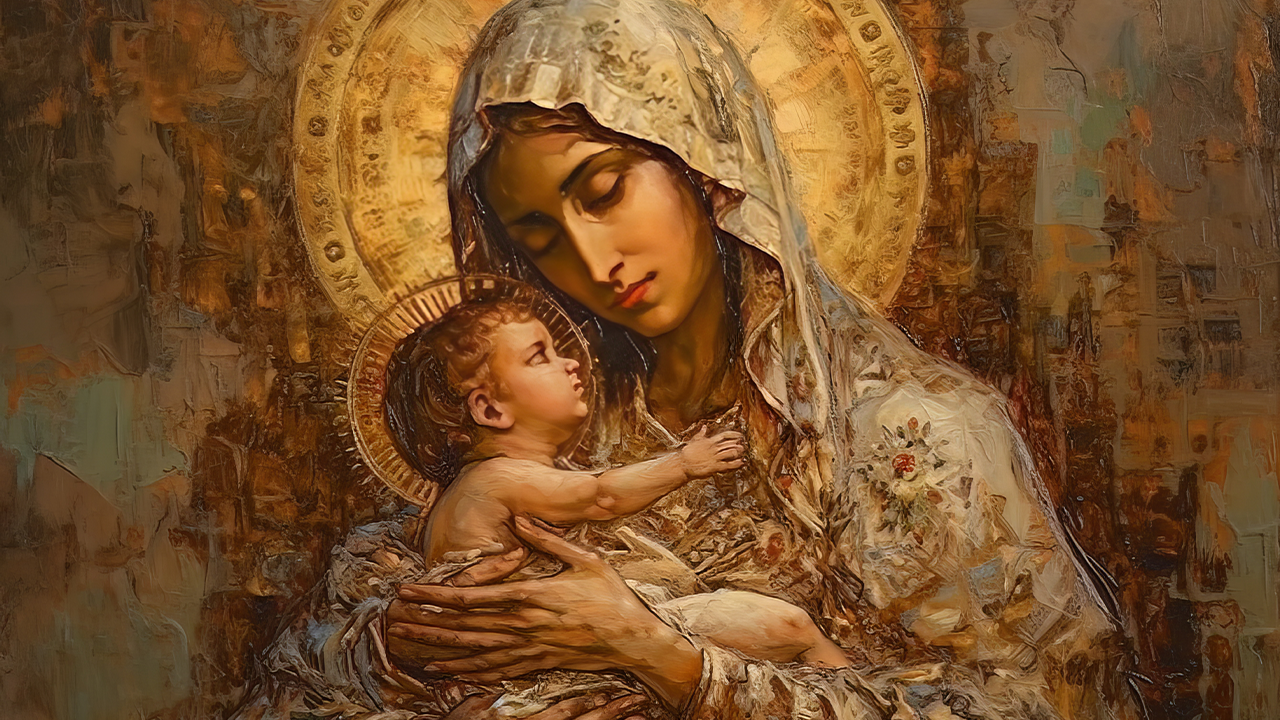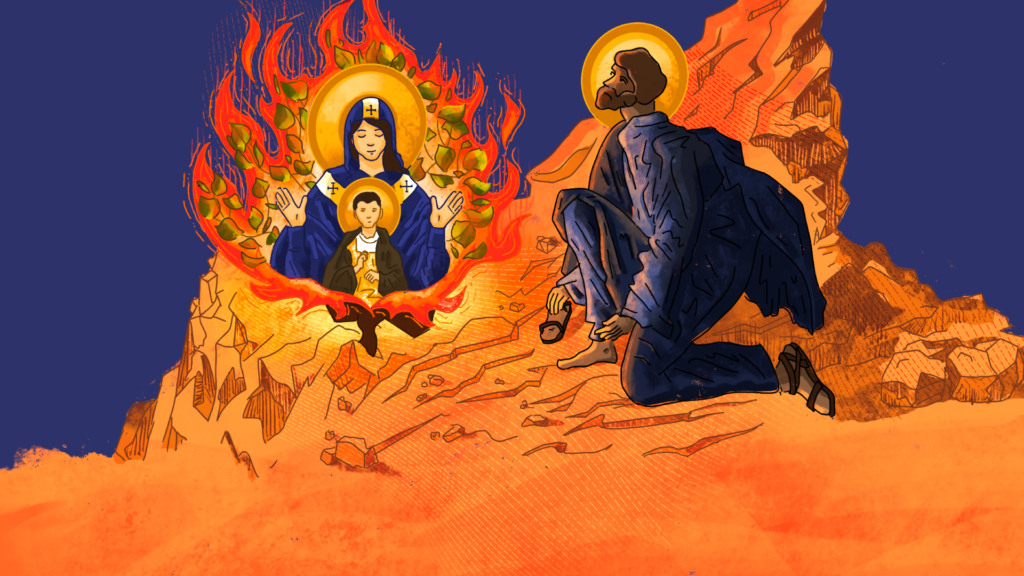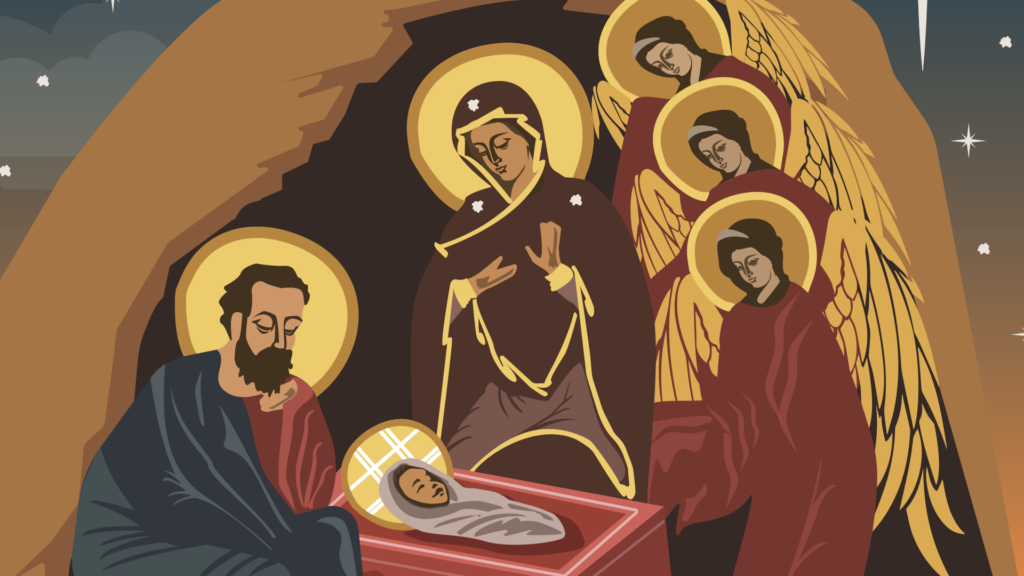We’re getting ready to start our 33-day journey to consecrate ourselves to Jesus through Mary. But what exactly does this mean, and how is it even possible? We’ve put together a few markers that can be helpful in making sense of Exodus’s Marian Consecration starting April 28th.
1. Consecration means “to set apart.”
Consecrated things or people are set it apart for a specific purpose. From here, we get the word “sacred,” which points to a divine purpose. In the Old Testament, people and things were consecrated to God. The Levites were consecrated as priests to offer sacrifice, and certain vessels were set apart for the temple. As Catholics, we also consecrate churches and liturgical vessels for the sole purpose of worshipping God.
2. A way of living out Baptism more faithfully.
A consecration is not meant to replace Baptism but to live it out more fully. To live out our Baptism means to follow the promises involved in it more closely. By Baptism, we reject Satan, his works, and his empty promises and are brought to communion with God in Christ. A consecration entails making a deeper commitment to live this out, to follow Christ more radically and faithfully in our daily lives and vocations.
3. We consecrate ourselves to Jesus.
Even though we use phrases like “Marian Consecration” to refer to certain types of consecration, we consecrate ourselves to Jesus. The “Marian” part comes from the fact that we can do it through a saint—that is, by their example and guidance. In our case, Mary will serve as our close companion as we grow closer to Christ.
Let’s talk about the saints
If we want to understand how a saint, especially Mary, can play a role in our walk with Christ, it’s worth remembering a few things about the saints in heaven. Scripture tells us that, in saving us, God will make us like himself—he will divinize us. Or, as St. Peter says, we will become “partakers of the divine nature.” Now, we can only guess what this looks like, but we do know one thing: that we will be like Jesus resurrected. But Scripture also gives us other insights.
1. They’re not dead but alive
First, we can be sure the saints in heaven are very much alive. Jesus tells us that God “is not God of the dead, but of the living” (Matthew 22:33). He also tells his disciples that he is going to prepare a place for them in the Father’s house to dwell with him (John 14: 2).
2. They are involved in God’s plan for the world.
God could have chosen to appear to everyone after his resurrection. Instead, he wanted us to cooperate with his plan, to share him with others. This is true not only of humans but also of those who dwell with him in heaven—like the angels. He sent Rafael to Tobias and Gabriel to the Virgin Mary. That’s one of the ways in which he chooses to work: through others. Wouldn’t it make sense that those who are fully partaking of his divine nature also cooperate with his saving plan for humanity like the angels? Doesn’t the gift of himself to humanity flow from that divine nature?
3. The Bible mentions their cooperation in heaven.
The first example is that of the angels already mentioned. But the Book of Revelation also says, “The four living creatures and the twenty-four elders fell down before the Lamb, each holding a harp, and with golden bowls full of incense, which are the prayers of the saints” (Revelation 5:8). The twenty-four elders, who are men, not angels, were presenting to God the prayers of the saints on earth. “Saints” here is used in the wider sense to refer to those on earth who have been baptized. They are clearly cooperating in union with those who are still on earth.
4. Asking for their help takes nothing away from God
Is it a lack of faith to ask for the help of a fraternity brother instead of simply trusting in God? Of course not. Even saint Paul asks the Christians in Rome for their prayers (Romans 15:30). The same holds true for the saints in heaven. As we saw in the example from Revelation, they are not competitors with God. They are cooperators in his divine plan. It’s like a bigger fraternity, though we prefer the term “communion of saints.” We have all been baptized into one Body, and remain in communion with one another in Christ, even after this earthly life.
5. It’s not necromancy
Asking for help from someone who is cooperating with God through prayer is not the same as conjuring up spirits. Asking for prayers and help from those in union with God is in accord with his plan. Conjuring, on the other hand, seeks out hidden knowledge and control instead of submitting to his plan. They are very different.
Let’s talk about Mary
Now that we have talked about the role of the saints, let’s talk about our Mother, how she can help us on our way to God, and why it makes sense to consecrate ourselves to Jesus through her.
1. Following in Jesus’s footsteps
Among all the saints in heaven, Mary holds a very special place. We can’t dive into what all of that means here, but for now, let’s only say that Jesus himself chose to put himself under Mary’s care. So, if it sounds a bit scandalous to do the same, it can’t be more scandalous than the Almighty God doing it. Just like she was entrusted to be the mother of Jesus and cooperate in God’s divine plan by raising him, she still cooperates in his plan by helping us become more like him. Her mission continues.
2. Heeding Jesus’s command
The last words of a dying person carry a lot of weight. They form part of their legacy. As Jesus hung on the cross, he said to the Virgin Mary, “Woman, behold your son!” And to the beloved disciple, “Behold your mother!” From that moment, the disciple “took her into his home.” If we apply to ourselves other words that Jesus spoke to his disciples, why not these if they are part of his legacy for us? The gift of his mother to his disciples continues to this day. Let us listen to him and accept her into our home.
3. Through her to Jesus
By consecrating ourselves to Jesus through Mary, we allow Mary to help and guide us to Jesus in several ways. First, she serves as a powerful example of complete trust and acceptance of God’s will, as we see in several places in Scripture, but especially at the Annunciation and the foot of the Cross. Secondly, as mother of all disciples, she continues her mission in heaven in union with God: to accept us in her motherly womb so that we also may be transformed into the image of her divine son.
Download the app. Consider joining the consecration. You will not regret it.






